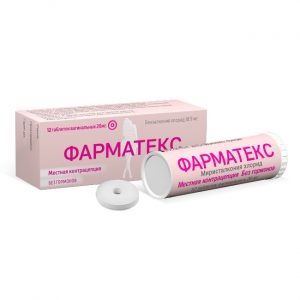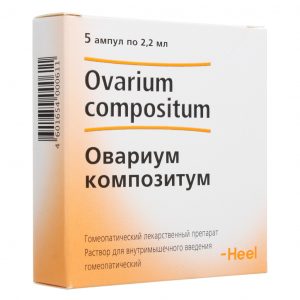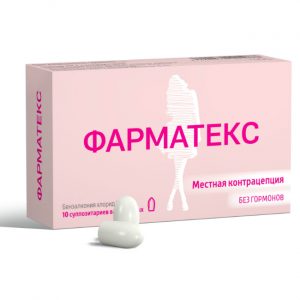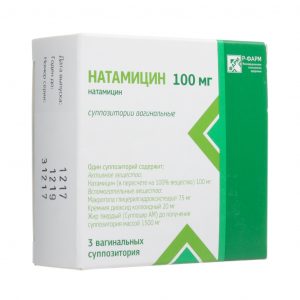Description
Latin name
Unithiol
Release form
Lyophilisate for preparation of solution for intravenous and s / c administration
Packing
5 pcs
Pharmacological action
Pharmacological action
enzymatic, proteolytic.
Pharmacodynamics
Longidase is a conjugate of the proteolytic enzyme hyaluronidase with a high molecular weight carrier from the group of poly-1,4-ethylene piperazine N-oxide derivatives. Longidase ® has the entire spectrum of pharmacological properties inherent in drugs with hyaluronidase activity. A specific substrate of hyaluronidase are glycosaminoglycans (hyaluronic acid, chondroitin, chondroitin-4-sulfate, chondroitin-6-sulfate) – a cementing substance of connective tissue.
As a result of hydrolysis (depolymerization), the viscosity of glycosaminoglycans and the ability to bind water and metal ions are reduced. As a result, the permeability of tissues increases, their trophism improves, swelling decreases, hematomas resolve, the elasticity of scarred areas increases, contractures and adhesions are eliminated, joint mobility increases. The effect is most pronounced in the initial stages of the pathological process.
The clinical effect of Longidase is significantly higher than the effect of native hyaluronidase. Conjugation increases the resistance of the enzyme to the action of temperature and inhibitors, increases its activity and leads to prolonged action. The enzymatic activity of the drug Longidaza persists when heated to 37 ° C for 20 days, while native hyaluronidase under the same conditions loses its activity during the day. The drug Longidaza also retains the pharmacological properties of a carrier with chelating, antioxidant, anti-inflammatory and immunomodulating activity. Longidase is able to bind iron ions released during the hydrolysis of glycosaminoglycans – activators of free radical reactions, hyaluronidase inhibitors and stimulants of collagen synthesis and thereby suppress the reverse reaction aimed at the synthesis of components of connective tissue.
The polytropic properties of the drug Longidaza are realized in a pronounced antifibrotic effect, experimentally proved by biochemical, histological and electron microscopic studies on the model of pneumofibrosis.
The drug Longidaza regulates (increases or decreases depending on the initial level) the synthesis of inflammatory mediators (IL-1 and tumor necrosis factor alpha), can weaken the course of the acute phase of inflammation, increase the humoral immune response and the body’s resistance to infection. These properties allow the use of the drug Longidaza ® during or after surgical treatment in order to prevent gross scarring and adhesions.
The use of the drug Longidaza in therapeutic doses during or after surgical treatment does not cause a deterioration in the postoperative period or the progression of the infectious process does not slow down the restoration of bone tissue.
Longidase with a joint sc or intramuscular injection increases the absorption of drugs, accelerates analgesia with the introduction of local anesthetics. Longidaza ® refers to practically non-toxic compounds, does not interfere with the normal functioning of the immune system, does not affect the reproductive function of male and female rats, the pre- and postnatal development of offspring, and does not have a mutagenic and carcinogenic effect. It has been experimentally proven that the irritant and allergenic properties of the enzyme hyaluronidase are reduced in the drug Longidaza ®. In therapeutic doses, Longidaza ® is well tolerated by patients.
Pharmacokinetics
When administered parenterally, the active substance is rapidly absorbed into the systemic circulation and reaches Cmax in the blood after 20 25 min, characterized by a high distribution rate in the body. The half-life is about 0.5 hours, T1 / 2 for i / m administration is 36 hours, with s / c it is about 45 hours. Apparent Vd is 0.43 l / kg. Conjugation does not reduce the high bioavailability of the enzyme (bioavailability of at least 90%).
The active substance penetrates into all organs and tissues, including through the BBB and the blood-brain barrier.
In the body, hyaluronidase undergoes hydrolysis, and the carrier breaks down to low molecular weight compounds (oligomers), which are excreted mainly through the kidneys in two phases. During the first day, 45 50% is excreted through the kidneys, and not more than 3% through the intestines. Further, the excretion rate slows down, by the 4th 5th day the drug is completely excreted.
Indications
Adults and adolescents over 12 years of age as part of complex therapy for diseases accompanied by connective tissue hyperplasia:
In pulmonology, urology, gynecology with the development of inflammation according to the interstitial type: pneumofibrosis, tuberculosis, alveolitis, interstitial cystic cystitis in the pelvis, tubal-peritoneal infertility.
In orthopedics, surgery, cosmetology: keloid, hypertrophic, inverted scars after pyoderma, injuries, burns, operations
long-term healing wounds
joint contractures, arthritis, hematomas
adhesive disease
In dermatovenereology: limited scleroderma of various localization.
To increase the bioavailability of drugs and diagnostics.
Contraindications
malignant neoplasms
children under 12 years of age (efficacy and safety have not been studied)
increased individual sensitivity to the drug.
With caution, the drug is prescribed for acute renal failure, pulmonary hemorrhage.
Use during pregnancy and lactation
The drug is contraindicated in pregnancy.
Composition
1 vial contains longidase with hyaluronidase activity of 3000 IU
excipient:
mannitol – up to 20 mg
Dosage and administration
The dosage regimen and route of administration are set individually, depending on the disease, age and severity of the patient’s condition.
Longidase is administered subcutaneously (near the lesion site or under scar-altered tissue) or in / m. The course is from 5 to 15 injections with an interval between injections of 3 to 10 days.
If necessary, recommend a second course in 2-3 months.
For diseases accompanied by a severe chronic productive process in the connective tissue, it is recommended that after a standard course of treatment, Longidase be maintained at a dose of 3000 IU with intervals between injections of 10-14 days.
Recommended treatment regimens
In pulmonology, urology, gynecology, dermatovenerology
In case of respiratory diseases, the drug is prescribed IM in a dose of 3000 IU once every 3-5 days with a total course of 10 injections. Further, long-term therapy is possible (from 3-4 months to 1 year) at a dose of 3000 IU once every 10-14 days.
For diseases of the pelvic organs, the drug is prescribed IM in a dose of 3000 IU once every 3-5 days with a general course of 5 to 15 injections.
With limited scleroderma of various shapes and localizations, the drug is administered IM in a dose of 3000-4500 IU once every 3 days with a course of 5-15 injections. The dose and duration of the course of treatment are selected individually depending on the clinical course, stage, and localization of the disease.
In orthopedics, surgery, cosmetology
With keloid, hypertrophic, inverted scars after pyoderma, burns, operations, the drug is administered inside the rumen at a dose of 3000 IU in 1-2 ml 1-2 times a week with a course of 5-10 injections and / or IM once every 3-5 days with a total course of up to 10 injections.
With long-term non-healing wounds, the drug is prescribed in oil at a dose of 1500-3000 IU once every 5 days with a course of 5-7 injections.
In case of joint contractures, arthritis, hematomas, Longidazum is prescribed IM in a dose of 3000 IU 1-2 times a week with a course of 7 to 15 injections.
In case of adhesive disease, the drug is administered IM once every 3-5 days at a dose of 3000 IU with a total course of 7 to 15 injections.
To increase the bioavailability of drugs and diagnostics (antibiotics, chemotherapy, anesthetics), Longidase is administered once every 3 days at a dose of 1500 IU. The course should not exceed 10 injections.
In patients with renal failure, the drug should not be prescribed more than 1 time per week.
Side effects
Local reactions: pain at the injection site in some cases – flushing of the skin and swelling of the tissues at the injection site.
Other: rarely – allergic reactions.
All adverse reactions pass through 48 to 72 hours.
Drug Interaction
Longidase is compatible with antibiotics, antiviral, antifungal and antihistamines, bronchodilators, cytostatics, ACS.
When used jointly, it increases the bioavailability of drugs, accelerates the onset of analgesia with local anesthetics.
Overdose
There have been no reports of an overdose of Longidaza at this time.
Storage conditions
The drug should be stored in a dry, dark place, out of the reach of children, at a temperature not exceeding 15 ° C.
Expiration
2 years.
Active ingredient
Bovgyaluronidase azoxymer
pharmacy terms and conditions
prescription
dosage form
dosage form
injection
NPO Petrovaks Pharm, Russia




